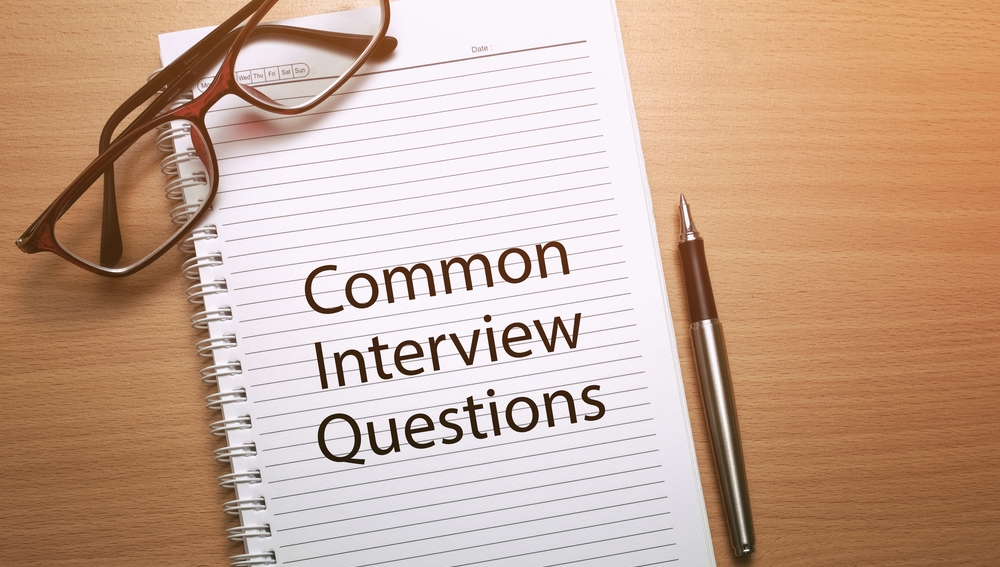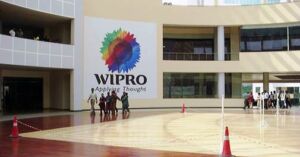Certainly! Job interviews play a vital role in the job application process, serving as a crucial opportunity for both employers and candidates to assess each other’s suitability for the position. Being well-prepared for interviews, especially for common interview questions, can significantly enhance your chances of securing the job you desire.
Interviews serve as a platform for employers to gain deeper insights into your skills, qualifications, and personality beyond what is presented in your resume or application. Through well-crafted questions, interviewers aim to understand your work experience, problem-solving abilities, interpersonal skills, and how well you align with the company culture and values.
Preparing for common interview questions for Gulf jobs is essential because it allows you to anticipate what the interviewer might ask and formulate thoughtful responses in advance. This preparation empowers you to present yourself in the best possible light, highlighting your strengths, accomplishments, and unique qualities that make you a strong candidate for the position.
By practicing your answers, you can refine your communication skills and boost your confidence during the actual interview. Confidence is crucial, as it demonstrates your self-assurance and ability to handle challenging situations, both essential traits in any professional setting.
Additionally, preparing for common interview questions enables you to provide clear, concise, and relevant answers. Being well-prepared prevents you from rambling or getting flustered during the interview, ensuring that you effectively communicate your qualifications and suitability for the role.
Below, I’ll provide an expanded list of the top 5 most common gulf interview questions along with tips on how to approach them:
1. “Tell me about yourself”
The “Tell me about yourself” question is one of the most common and open-ended interview questions. It is usually asked at the beginning of the interview to get to know you better and to give you the opportunity to set the tone for the rest of the conversation. Here’s how to answer this question effectively:
Keep it concise: Your response should be brief and to the point, ideally around 1-2 minutes long. Avoid giving a lengthy autobiography.
Professional Summary: Focus on your professional background, skills, and experiences that are relevant to the job you are applying for. The interviewer wants to know how you align with the role they are offering.
Career progression: Highlight your career progression and mention your most recent or significant achievements. This can show your growth and accomplishments over time.
Strengths and qualities: Emphasize a few key strengths or qualities that make you stand out as a candidate. Support these with examples or experiences.
Passion for the job: Express enthusiasm for the position and the company. Share why you are interested in the role and how it fits with your career goals.
Here’s an example response:
“Sure, I’d be happy to. I have over 5 years of experience in digital marketing, with a focus on social media and content creation. In my previous role at Company X, I managed social media campaigns that resulted in a 20% increase in website traffic and a 15% boost in brand engagement.
I’m highly skilled in using analytics tools to measure the effectiveness of marketing strategies, and I’m always looking for innovative ways to connect with the target audience. One thing I’m particularly proud of is developing a viral social media campaign that reached over 1 million impressions within a week.
I’m excited about the opportunity to join [Company Name] because I admire your commitment to creating impactful marketing campaigns that resonate with consumers. I believe my experience and passion for digital marketing make me a strong fit for this role, and I’m eager to contribute to the success of your team.”
Remember, your response should be tailored to your experiences and the specific job you’re applying for. Be confident and positive in your delivery, and practice your answer beforehand so that you can communicate your key points clearly during the interview.
Download : Best Book(pdf) for job interview Q&A preparation(More than 150,000 copied sold)
2. What are your strengths and weaknesses?
Answering the “What are your strengths and weaknesses?” question requires a careful balance of showcasing your positive qualities while also demonstrating self-awareness and a willingness to grow. Here’s how to tackle this question effectively:
Focus on strengths:
- Choose a few key strengths that are relevant to the job you are applying for.
- Support your strengths with specific examples or achievements from your past experiences.
- Highlight how these strengths have benefited you and your previous employers.
Example response for strengths: “I believe my key strengths lie in my strong analytical skills and ability to adapt quickly to new situations. In my previous role as a data analyst, I was responsible for analyzing complex data sets and deriving valuable insights that led to data-driven decision-making within the company. Additionally, my adaptability allowed me to excel in a fast-paced environment and take on new projects with ease.”
Address weaknesses positively:
- Choose a weakness that is not directly related to the core requirements of the job.
- Show that you are actively working to improve on this weakness.
- Mention any steps you have taken or are taking to overcome the weakness.
Example response for weaknesses: “One area I’ve been actively working to improve is public speaking. I used to feel quite nervous when presenting in front of large groups, but I recognized the importance of effective communication in my field. To address this, I’ve been attending public speaking workshops and volunteering to lead team meetings to build my confidence. I’ve seen significant progress, and I’m committed to continuing my growth in this area.”
Emphasize the positive outcome:
- For weaknesses, show how your proactive efforts have resulted in positive outcomes.
- Demonstrate that you can turn a weakness into a growth opportunity.
Example response (continuation of weaknesses): “As a result of my efforts, I’ve become more comfortable and confident when speaking in public. I recently presented a project update to a senior management team, and the positive feedback I received further motivated me to continue improving in this aspect.”
Remember, the goal of discussing weaknesses is not to dwell on shortcomings but to showcase your self-awareness and ability to address and overcome challenges. Keep your response balanced and remain positive throughout the answer. By demonstrating that you can handle both strengths and weaknesses constructively, you present yourself as a well-rounded and motivated candidate to potential employers.
Also Read: Right Way to Answer: Where Do You See Yourself in Next 5 Years ?
3. Why are you interested in this position?
When answering the question, “Why are you interested in this position?”, it’s essential to demonstrate your genuine interest and alignment with the company and the role. Here’s how to craft an effective response:
Research the company: Show that you’ve done your homework by researching the company thoroughly. Understand their products, services, culture, values, and any recent achievements or initiatives.
Highlight specific aspects: Mention specific aspects of the position that appeal to you, such as job responsibilities, challenges, or opportunities for growth. Connect these aspects to your skills and career goals.
Align with company values: Emphasize how your values align with those of the company. This demonstrates that you’re not just looking for any job, but one that fits your professional and personal values.
Relate to your strengths: Explain how the position plays to your strengths and how your skills can contribute to the company’s success.
Download : Best Book(pdf) for job interview Q&A preparation(More than 150,000 copied sold)
Example response:
“I am genuinely excited about this position at [Company Name]. From my research, I am impressed by the company’s commitment to innovation and its customer-centric approach. The [specific product/service] you offer has had a significant impact on the market, and I believe my skills in [relevant skill] align perfectly with the company’s mission to [specific company goal/mission].
The responsibilities outlined in the job description, particularly [mention a specific responsibility], greatly interest me. I have a track record of success in similar projects in my previous role, and I’m eager to apply my expertise to drive even greater results here.
Moreover, the company’s focus on employee development and fostering a collaborative work environment resonates with my own values. I thrive in dynamic teams, and I’m excited about the potential to learn and grow alongside talented professionals.
I believe that my passion for [industry/sector] and my drive to make a meaningful impact align perfectly with the goals of [Company Name]. I am genuinely eager to contribute my skills and experience to the team and be a part of the company’s continued success.”
Also Read: List of Top 10 Job Consultants in India 2023
In your response, be sincere and specific to the company and the role you’re applying for. Avoid generic answers that could apply to any company, as they may come across as insincere. By demonstrating your enthusiasm, knowledge, and alignment with the company, you’ll leave a positive impression on the interviewer and increase your chances of being considered for the position.
4. Why should we hire you?
When answering the question, “Why should we hire you?” it’s essential to confidently communicate your unique value and how you can contribute to the company’s success. Here’s how to provide a compelling response:
Focus on your strengths: Highlight the specific skills, qualifications, and experiences that make you a strong fit for the position. Match your strengths to the key requirements of the job.
Align with company needs: Demonstrate that you understand the company’s needs and explain how you can address them effectively. Show that you’ve researched the company and are genuinely interested in contributing to its goals.
Provide evidence: Support your claims with concrete examples from your past experiences. Use achievements and accomplishments to showcase your abilities.
Show enthusiasm: Express enthusiasm for the role and the company. Communicate your excitement about the opportunity to work with the team and make a meaningful impact.
Unique selling points: Identify what sets you apart from other candidates. Emphasize any unique skills or experiences that make you stand out.
Example response:
“I believe I would be an excellent addition to your team and a valuable asset to [Company Name]. My background in [relevant field/industry] has equipped me with the skills and experience needed to excel in this role. For example, in my previous position at Company X, I successfully led a cross-functional team to launch a new product, resulting in a 30% increase in sales within the first quarter.
What excites me about [Company Name] is its commitment to innovation and its customer-centric approach. My ability to analyze market trends and customer insights aligns perfectly with the company’s focus on meeting the needs of its target audience.
Moreover, I’m confident that my strong communication and collaboration skills would enable me to work effectively with the team and contribute to a positive and productive work environment. I’m a fast learner and thrive in dynamic settings, making me well-prepared to adapt to any challenges the role may bring.
I am genuinely passionate about [industry/sector], and I believe that my dedication to achieving results and my strategic approach to problem-solving would make a significant impact on the success of [Company Name]. I am eager to bring my expertise and drive to your team and contribute to the continued growth of the company.”
In your response, be specific, confident, and relevant to the position you’re applying for. Tailor your answer to the company’s needs and culture. By effectively showcasing your strengths, accomplishments, and alignment with the company’s goals, you can convince the interviewer that you are the ideal candidate for the job.
5. How do you handle pressure or stressful situations?
When answering the question, “How do you handle pressure or stressful situations?”, it’s important to demonstrate your ability to stay composed and effective in challenging circumstances. Here’s how to provide a strong response:
Give specific examples: Draw from past experiences where you successfully managed pressure or stress. This could be from your previous job, academic projects, or personal situations.
Highlight your coping strategies: Describe the strategies you employ to manage stress effectively. Focus on positive and constructive methods rather than avoiding or ignoring stress.
Emphasize problem-solving: Show how you approach stressful situations with a problem-solving mindset. Explain how you break down complex problems and tackle them step by step.
Communication skills: Highlight your ability to communicate effectively during high-pressure situations, both with team members and stakeholders, if applicable.
Learning from experiences: Discuss how you’ve learned from past stressful experiences and improved your approach to handling pressure over time.
Example response:
“I thrive under pressure and have developed effective strategies for managing stressful situations. For instance, in my previous role as a project manager, we encountered a tight deadline for a critical project. To ensure we met the deadline without compromising quality, I immediately gathered the team for a brief meeting. I assigned specific tasks based on each team member’s strengths, set clear milestones, and established open communication channels for updates and feedback.
During the project’s execution, unexpected challenges arose, leading to increased stress. In such situations, I maintained a calm demeanor and focused on addressing the issues with a problem-solving approach. I encouraged the team to collaborate and brainstorm potential solutions, and we were able to adjust our plans swiftly to overcome obstacles.
Additionally, I find that staying organized and prioritizing tasks helps me manage pressure effectively. I use tools like to-do lists and time management techniques to ensure I can meet deadlines while delivering quality work.
Over the years, I’ve learned that taking short breaks during intense work periods helps me recharge and maintain focus. I also practice mindfulness techniques to stay centered during stressful moments.
Overall, my ability to communicate openly with the team, apply problem-solving skills, and stay organized has enabled me to handle pressure in a constructive manner and deliver successful outcomes.”
In your response, be authentic and provide examples that showcase your adaptability and ability to handle challenging situations. Demonstrating your capacity to manage pressure effectively will reassure the interviewer that you can handle the demands of the job with confidence and resilience.
Conclusion
Practice answering these questions with confidence and sincerity to make a strong impression during your interviews.
Remember, interview questions can vary depending on the job and the interviewer’s style. The key to successful interviews is preparation and practice. Review these questions, think about your answers, and practice responding confidently.
Additionally, researching the company and understanding the job description thoroughly will help you tailor your responses and demonstrate a genuine interest in the position. Good luck with your interviews!






